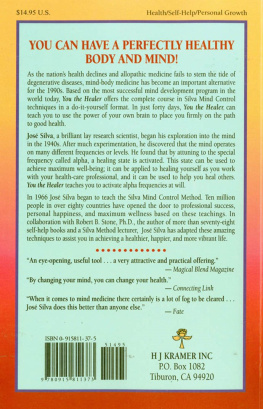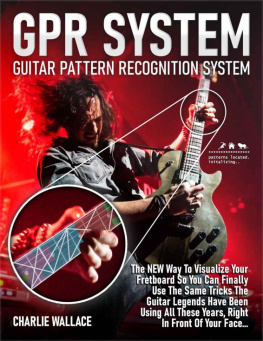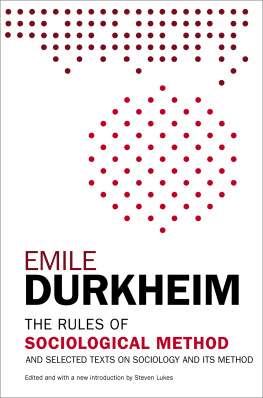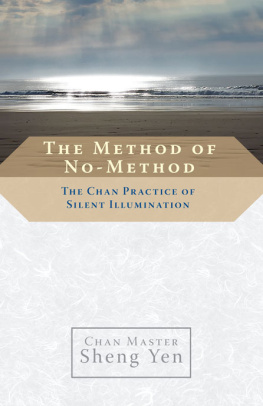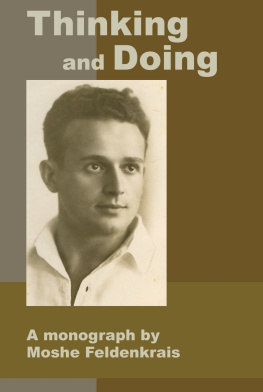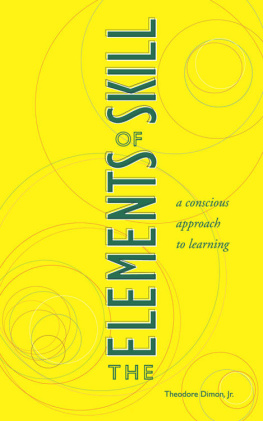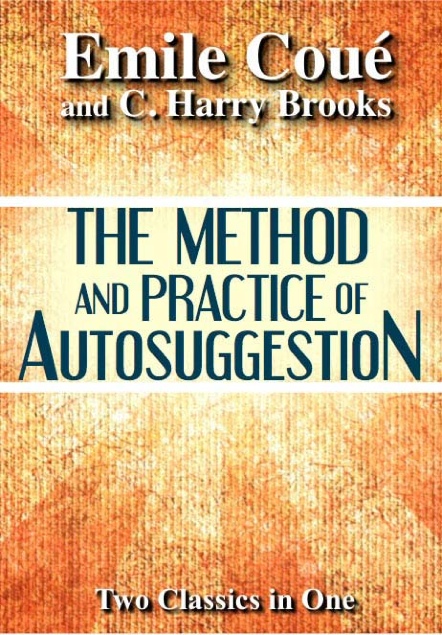

Emile Cou, February 26, 1857 July 2, 1926
The Method and Practice of Autosuggestion
Two Classics in One
Self-Mastery Through Conscious Autosuggestion
by Emile Cou
~ PLUS ~
The Practice of Autosuggestion
by C. Harry Brooks
PLEASE NOTE: Any health advice given in this ebook may not be right for your particular case and you should seek your own profession opinion before acting on said advice.
This edition prepared for
Trans4mind eBooks
www.trans4mind.com
ISBN: 978-1-8647656-6-3
Copyright 2011 Trans4mind eBooks
All rights reserved. No part of this ebook may be reproduced or transmitted in any form or by any means, electronic or mechanical, including photocopying, recording or by any information storage and retrieval system, without written permission from the publisher, except for the inclusion of brief quotations in a review.
Cover background: AlessiaGiangrande, Dreamstime.com

contents
SELF-MASTERY THROUGH CONSCIOUS AUTOSUGGESTION
by EMILE COU
CONTENTS
THE PRACTICE OF AUTOSUGGESTION
BY THE METHOD of EMILE COU
by C. HARRY BROOKS
CONTENTS
The Clinic of Emile Cou
A Few of Cous Cures
The Childrens Clinic
Thought is a Force
Thought and the Will
General Rules
The General Formula
Particular Suggestions
How to Deal with Pain
Autosuggestion and the Child
Conclusion
Suggestion, or rather Autosuggestion, is quite a new subject, and yet at the same time it is as old as the world.
It is new in the sense that until now it has been wrongly studied and in consequence wrongly understood; it is old because it dates from the appearance of man on the earth. In fact autosuggestion is an instrument that we possess at birth, and in this instrument, or rather in this force, resides a marvelous and incalculable power, which according to circumstances produces the best or the worst results. Knowledge of this force is useful to each one of us, but it is peculiarly indispensable to doctors, magistrates, lawyers, and to those engaged in the work of education.
By knowing how to practise it consciously it is possible in the first place to avoid provoking in others bad autosuggestions which may have disastrous consequences, and secondly, consciously to provoke good ones instead, thus bringing physical health to the sick, and moral health to the neurotic and the erring, the unconscious victims of anterior autosuggestions, and to guide into the right path those who had a tendency to take the wrong one.
In order to understand properly the phenomena of suggestion, or to speak more correctly of autosuggestion, it is necessary to know that two absolutely distinct selves exist within us. Both are intelligent, but while one is conscious the other is unconscious. For this reason the existence of the latter generally escapes notice. It is however easy to prove its existence if one merely takes the trouble to examine certain phenomena and to reflect a few moments upon them. Let us take for instance the following examples:
Every one has heard of somnambulism; every one knows that a somnambulist gets up at night without waking , leaves his room after either dressing himself or not, goes downstairs, walks along corridors, and after having executed certain acts or accomplished certain work, returns to his room, goes to bed again, and shows next day the greatest astonishment at finding work finished which he had left unfinished the day before.
It is however he himself who has done it without being aware of it. What force has his body obeyed if it is not an unconscious force, in fact his unconscious self?
Let us now examine the alas, too frequent case of a drunkard attacked by delirium tremens . As though seized with madness he picks up the nearest weapon, knife, hammer, or hatchet, as the case may be, and strikes furiously those who are unlucky enough to be in his vicinity. Once the attack is over, he recovers his senses and contemplates with horror the scene of carnage around him, without realizing that he himself is the author of it. Here again is it not the unconscious self which has caused the unhappy man to act in this way? [*]
[*] And what aversions, what ills we create for ourselves, everyone of us and in every domain by not "immediately" bringing into play "good conscious autosuggestions" against our "bad unconscious autosuggestions," thus bringing about the disappearance of all unjust suffering.
If we compare the conscious with the unconscious self we see that the conscious self is often possessed of a very unreliable memory while the unconscious self on the contrary is provided with a marvelous and impeccable memory which registers without our knowledge the smallest events, the least important acts of our existence. Further, it is credulous and accepts with unreasoning docility what it is told. Thus, as it is the unconscious that is responsible for the functioning of all our organs but the intermediary of the brain, a result is produced which may seem rather paradoxical to you: that is, if it believes that a certain organ functions well or ill or that we feel such and such an impression, the organ in question does indeed function well or ill, or we do feel that impression.
Not only does the unconscious self preside over the functions of our organism, but also over all our actions whatever they are . It is this that we call imagination, and it is this which, contrary to accepted opinion, always makes us act even, and above all , against our will when there is antagonism between these two forces.
If we open a dictionary and look up the word "will", we find this definition: "The faculty of freely determining certain acts". We accept this definition as true and unattackable, although nothing could be more false. This will that we claim so proudly, always yields to the imagination. It is an absolute rule that admits of no exception .
"Blasphemy! Paradox!" you will exclaim. "Not at all! On the contrary, it is the purest truth," I shall reply.
In order to convince yourself of it, open your eyes, look round you and try to understand what you see. You will then come to the conclusion that what I tell you is not an idle theory, offspring of a sick brain but the simple expression of a fact .
Suppose that we place on the ground a plank 30 feet long by 1 foot wide. It is evident that everybody will be capable of going from one end to the other of this plank without stepping over the edge. But now change the conditions of the experiment, and imagine this plank placed at the height of the towers of a cathedral. Who then will be capable of advancing even a few feet along this narrow path? Could you hear me speak? Probably not. Before you had taken two steps you would begin to tremble, and in spite of every effort of your will you would be certain to fall to the ground.
Why is it then that you would not fall if the plank is on the ground, and why should you fall if it is raised to a height above the ground? Simply because in the first case you imagine that it is easy to go to the end of this plank, while in the second case you imagine that you cannot do so.
Notice that your will is powerless to make you advance; if you imagine that you cannot , it is absolutely impossible for you to do so. If tilers and carpenters are able to accomplish this feat, it is because they think they can do it.
Next page


